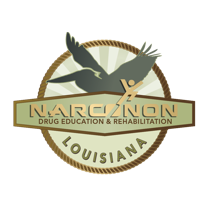NARCONON WELCOMES EDUCATION FOR DOCTORS
 Narconon has worked hard to meet the ever increasing number of people who are arriving to drug treatment because of prescription drug abuse. Most of this abuse starts, not on the streets, but in a doctor’s office. More frequently the medical profession is behind the scene of prescription drug abuse, but seem to be nowhere around when it comes to treatment. Hopefully the situation can be addressed through education, as described below. The first lesson needs to be how not to contribute to addiction in the first place. Perhaps doctors can sign some kind of promise that they will not reduce the image of their profession by opening up pain clinics, where many of the customers wind up in drug treatment or dead.
Narconon has worked hard to meet the ever increasing number of people who are arriving to drug treatment because of prescription drug abuse. Most of this abuse starts, not on the streets, but in a doctor’s office. More frequently the medical profession is behind the scene of prescription drug abuse, but seem to be nowhere around when it comes to treatment. Hopefully the situation can be addressed through education, as described below. The first lesson needs to be how not to contribute to addiction in the first place. Perhaps doctors can sign some kind of promise that they will not reduce the image of their profession by opening up pain clinics, where many of the customers wind up in drug treatment or dead.
Are we really to trust this profession with drug treatment? Perhaps a better first step would be to get them to realize how much damage has actually been done by a few doctors. It is much like giving an orthopedic surgeon free reign to go around breaking bones, that he later will be paid to fix. Here is the article:
The National Institute on Drug Abuse (NIDA) is taking its efforts to bridge the gap between physician education and high-quality care of patients with substance use disorders to selected medical schools, and ultimately, to the World Wide Web.
The outreach effort, developed in 2007 and known as NIDAMED, appointed several U.S. medical schools to serve as Centers of Excellence for Physician Information, or COEs. The COEs were charged with developing innovative, evidence-based substance-abuse training resources in easy-to-access formats, which could then be made available to physician education programs nationwide.
Uniform standards for substance-abuse training have long been lacking in U.S., and because of that, educational programs have varied in quality and content. The goal of NIDAMED was to provide both students and educators with evidence-based tools to improve screening and treatment.
In the four years since NIDAMED launched, participating COEs have done just that. State-of-the-science training materials in a variety of formats, including PDF curricula, PowerPoint presentations, and streaming training videos, all developed by faculty experts at Boston University, Harvard, Drexel, and Tufts, among others, are now freely available for download on the NIDA COE website.
http://www.jointogether.org/blog/posts/2011/nida-brings-evidence-based.html
Narconon sees too many people whose lives have been adversely affected by prescription medication. It is only right that if doctors want to be involved in the treatment, that they are required to act ethically when it comes to prescribing.
Narconon drug treatment will continue to treat those who are addicted to prescription medication, successfully.
